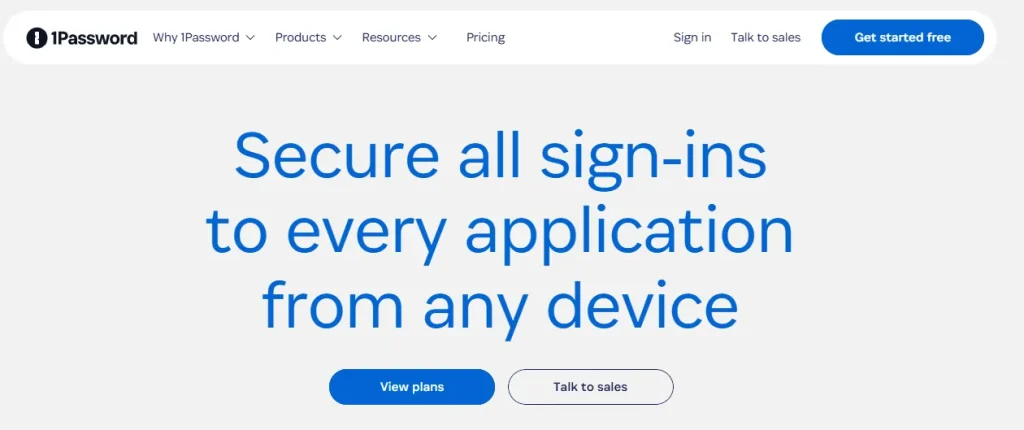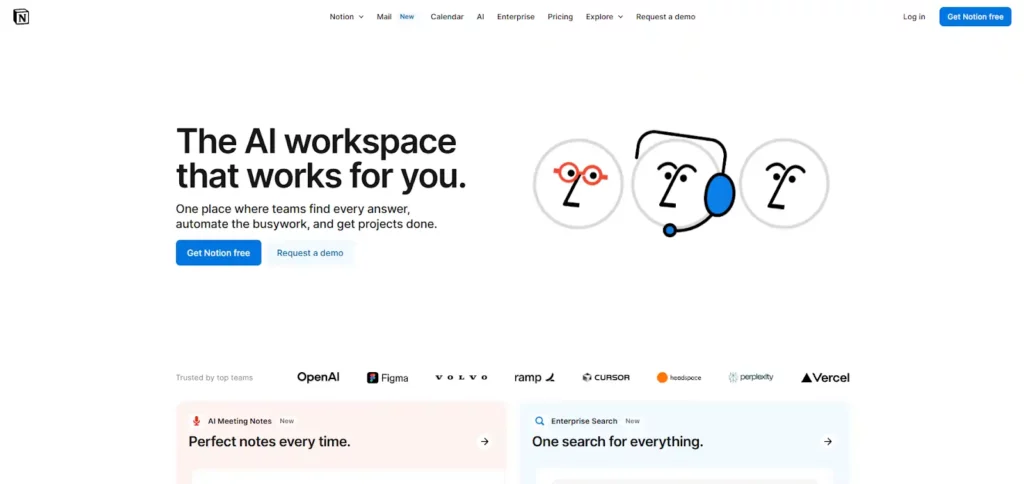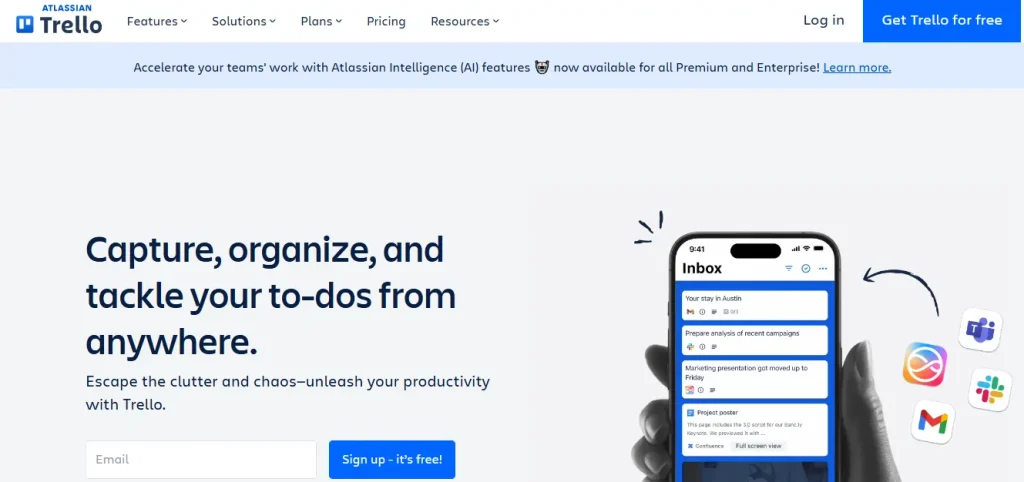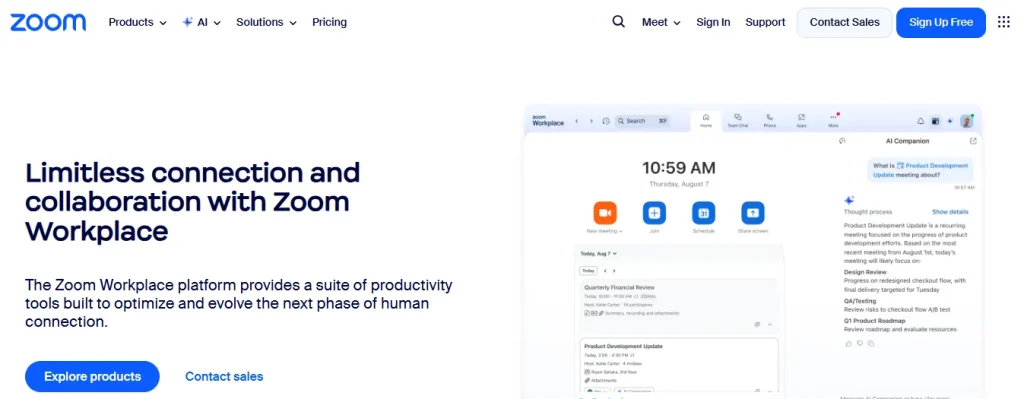Based on my experience guiding numerous early-stage startups, I can tell you that a well-chosen operational toolkit isn't just helpful—it's the very foundation of lasting growth. Too many founders get bogged down by clunky manual tasks and disorganised data, which stops progress dead in its tracks.
This guide cuts straight to the point, offering a practical look at seven essential, expert-vetted tools. We will explore how these specific platforms help you organise workflows, improve team output, and build a solid base for scaling up your operations effectively.
What Makes a Tool “Essential” for Startup Founders
An essential tool for any startup founder is one that directly solves a core operational problem and provides a significant return on investment in terms of time, capital, or resources saved. Unlike “nice-to-have” software that offers marginal benefits, essential tools are non-negotiable for building a scalable and efficient business. The criteria for an essential tool include:

Best Tools for Startup Founders to Build, Grow, and Scale
| Essential Tools for Every Startup Founder | Core Function | Key Use Case |
|---|---|---|
| 1Password | 🔐 Secure Access | Centralized Credential Management |
| Asana | 📈 Project Coordination | Scalable Task Tracking |
| Notion | 🧠 Knowledge Hub | Unified Company Wiki |
| Trello | 📋 Visual Workflow | Agile Sprint Boards |
| Slack | 💬 Team Communication | Real-Time Collaboration |
| Microsoft Teams | 🤝 Integrated Hub | Unified M365 Comms |
| Zoom | 📹 Video Conferencing | Reliable Virtual Meetings |
1. 1Password

For any startup founder, managing dozens of passwords across countless SaaS applications is a significant security risk and a major drag on productivity. My experience has shown that weak or reused credentials are one of the fastest ways to expose sensitive company and customer data.
1Password directly solves this by creating a secure, centralized vault for every login, payment card, and sensitive document. It’s an essential tool for establishing a robust security posture from day one.
This platform moves beyond basic password management by providing secure access for every identity, device, and application your startup uses. It closes the critical gap left by traditional access tools, ensuring your team can work efficiently without compromising security.
1Password Key Features & Use Cases
How Founders Use It
Founders implement 1Password as the single source of truth for all access credentials, which is critical for maintaining control as the team grows.
Validately/UserTesting for Your Security Stack
Just as you test your product with users, you must validate your security protocols. Think of implementing 1Password as a form of internal user testing for your security processes.
Observing adoption patterns helps you refine your security policies and ensure the tool is practically effective, not just theoretically secure.
Why Choose 1Password?
Choose 1Password to eliminate password risks and manage access across all applications, securing your startup's data from day one.
⭐Rating: ★★★★★ (4.9/5)
2. Asana
For a startup to succeed, every task, project, and goal must be perfectly coordinated. Ambiguity is the enemy of progress, leading to missed deadlines and wasted resources. Asana provides the clarity and structure necessary to eliminate this chaos.
It functions as a central hub where founders can connect strategic goals directly to the work required to achieve them , ensuring the entire team moves in unison.
By replacing scattered spreadsheets and endless email chains with a dynamic and collaborative platform, Asana empowers startups to plan, track, and complete their most critical initiatives in one place. Its workflow automation and AI-powered assistance handle repetitive tasks, freeing founders to focus on high-impact strategic work.
Asana Key Features & Use Cases
How Founders Use It
Founders leverage Asana to translate their vision into an actionable plan and maintain operational control as they scale.
Validately/UserTesting for Your Workflow
Before rolling out Asana across the company, it's crucial to user-test your internal workflows. Treat your Asana setup like a product.
Answering these questions ensures the system is adopted effectively and truly enhances productivity.
Why Choose Asana?
Choose Asana for its ability to bring clarity, accountability, and efficiency to your startup, connecting every task to your most important goals.
⭐Rating: ★★★★★ (4.8/5)
3. Notion

Startups run on information, but that information is often scattered across dozens of disconnected apps. This creates knowledge silos and operational drag, slowing down progress. Notion solves this by consolidating documents, projects, and company knowledge into a single, intelligent workspace. It’s an essential tool for creating a unified “company brain” that scales as you grow.
With Notion AI, every team member gains a powerful assistant that can summarize meetings, automate tasks, and surface critical information instantly. This allows founders to eliminate tool sprawl, reduce costs, and empower their teams to get more done with fewer resources.
Notion Key Features & Use Cases
How Founders Use It
Founders use Notion to build a custom operating system for their entire business, replacing multiple specialized tools.
Validately/UserTesting for Your Knowledge Base
Before making Notion the company-wide standard, it is vital to user-test the structures you create within it.
Testing these workflows ensures the system is intuitive and will be adopted successfully by the entire team.
Why Choose Notion?
Choose Notion to consolidate your tools, centralize knowledge, and leverage AI to build a more productive and efficient startup.
⭐Rating: ★★★★★ (4.9/5)
4. Trello

Startup founders must translate chaotic brainstorming sessions and streams of ideas into organized, actionable tasks. Without a clear system, critical to-dos get lost and momentum stalls. Trello provides the solution with its simple, visual, and highly intuitive Kanban-style boards. It is an essential tool for capturing every idea and organizing complex projects into clear, manageable steps.
With Trello, you can transform messages from email or Slack directly into actionable cards, ensuring no follow-up is ever missed. Its powerful no-code automation handles repetitive tasks, allowing your team to focus on the work that drives growth. For startups needing a system that is easy to adopt and delivers value almost immediately, Trello is the answer.
Trello Key Features & Use Cases
How Founders Use It
Founders deploy Trello as a flexible command center for a wide range of operational needs, valued for its simplicity and visual clarity.
Validately/UserTesting for Your Project Boards
Before standardizing your Trello workflows, it's crucial to test their usability with your team to ensure they are effective.
Validating these points ensures your Trello setup accelerates work rather than becoming another task to manage.
Why Choose Trello?
Choose Trello for its unmatched ease of use and visual workflow management, helping your startup turn ideas into action, fast.
⭐Rating: ★★★★☆ (4.5/5)
5. Slack
Effective communication is the lifeblood of any successful startup. Disjointed email threads, lost files, and siloed conversations create friction and slow down execution. Slack eliminates these obstacles by bringing your team, tools, and conversations into one unified and intelligent platform. It is the essential digital headquarters for startups that need to move fast and stay aligned.
With Slack AI, you can instantly search your company’s entire conversation history for answers, get daily recaps of important discussions, and automate routine tasks. This frees up invaluable time and empowers your team to collaborate with unparalleled efficiency, increasing productivity and connecting people, whether they are in the same room or across the globe.
Slack Key Features & Use Cases
How Founders Use It
Founders rely on Slack as their central command center to drive projects forward and maintain a connected culture.
Validately/UserTesting for Your Communication Hub
To ensure Slack is a productivity driver and not a source of distraction, it's important to test your setup and internal best practices.
Validating these points helps create a focused and efficient communication environment that truly supports your startup's goals.
Why Choose Slack?
Choose Slack to consolidate your communication, automate routine work, and leverage AI to build a faster, more connected, and more productive startup.
⭐Rating: ★★★★★ (4.9/5)
6. Microsoft Teams

For startups, especially those already leveraging the Microsoft 365 ecosystem, maintaining seamless and secure collaboration is a critical operational advantage. Microsoft Teams provides an all-in-one platform where chat, meetings, calling, and real-time document collaboration converge.
It is an essential tool for founders looking to consolidate their communication stack and enhance productivity within a secure, integrated environment. With next-generation AI capabilities powered by Copilot, Teams transforms how work gets done.
It can automatically generate meeting notes, summarize long conversations, and streamline workflows, allowing founders and their teams to focus on innovation rather than administrative tasks. This makes Teams a powerful engine for driving responsiveness and operational efficiency.
Microsoft Teams Key Features & Use Cases
How Founders Use It
Founders utilize Teams as a centralized and secure hub to manage the full spectrum of their startup's communication and collaboration needs.
Validately/UserTesting for Your Collaboration Environment
To maximize the benefits of Teams, it's important to test and refine how your startup uses the platform to ensure it aligns with your workflows.
Validating these aspects ensures that Teams is not just a tool, but a true strategic asset for your startup.
Why Choose Microsoft Teams?
Choose Microsoft Teams for its deep integration with the M365 suite and its powerful AI features, creating a secure and highly productive collaboration hub.
⭐Rating: ★★★★☆ (4.7/5)
7. Zoom

For a startup, the ability to connect reliably with team members, investors, and customers is non-negotiable. Technical glitches and poor user experiences can damage credibility and slow down critical conversations. Zoom addresses this by providing an exceptionally reliable and user-friendly platform for video conferencing and collaboration.
It is the essential tool for founders who need to ensure every interaction is seamless, professional, and productive. The Zoom Workplace platform now integrates a powerful AI Companion that assists with note-taking, summarizing meetings, and even drafting chat replies, allowing you to reclaim valuable time.
By bringing together meetings, chat, phone, and whiteboarding, Zoom provides a comprehensive suite of tools designed to optimize human connection and help your team get more done, together.
Zoom Key Features & Use Cases
How Founders Use It
Founders depend on Zoom as their go-to solution for all forms of real-time communication, from internal huddles to high-stakes presentations.
Validately/UserTesting for Your Virtual Meetings
To ensure your Zoom meetings are as effective as possible, it's important to test the experience from an attendee's perspective.
Validating these elements ensures every meeting you host is a productive and professional experience for all involved.
Why Choose Zoom?
Choose Zoom for its unparalleled reliability and ease of use, ensuring that your startup's most important conversations are always clear and productive.
⭐Rating: ★★★★★ (4.8/5)
The 30-60-90 Day Implementation Blueprint for New Startup Founders
A structured implementation plan ensures that new founders deploy the right tools at the right time without becoming overwhelmed. This blueprint prioritizes foundational stability first, followed by growth and optimization.
Phase 1: The First 30 Days (Foundational Operations)
The initial month is focused on establishing a stable internal operating system. The objective is to centralize information and streamline basic tasks to prevent chaos.
Phase 2: Days 31-60 (Market Engagement and Measurement)
With internal operations stabilized, the focus shifts to external-facing activities and data collection. The goal is to acquire and understand your first users.
Phase 3: Days 61-90 (Process Optimization and Automation)
In the third month, the focus turns to refining workflows and scaling what works. The objective is to improve efficiency by making your tools work together.
From Chaos to Control
Building a successful startup requires operational excellence, and the right digital toolkit is fundamental to achieving it. These systems are not just conveniences; they create the clear workflows and effective communication necessary for growth.
Making smart, foundational choices in your software directly supports your strategic goals. The tools you select will form the operational backbone of your company, giving you the structure needed to scale effectively.
Start today by auditing your current setup to ensure it meets your demands.
Recommended Readings:
















